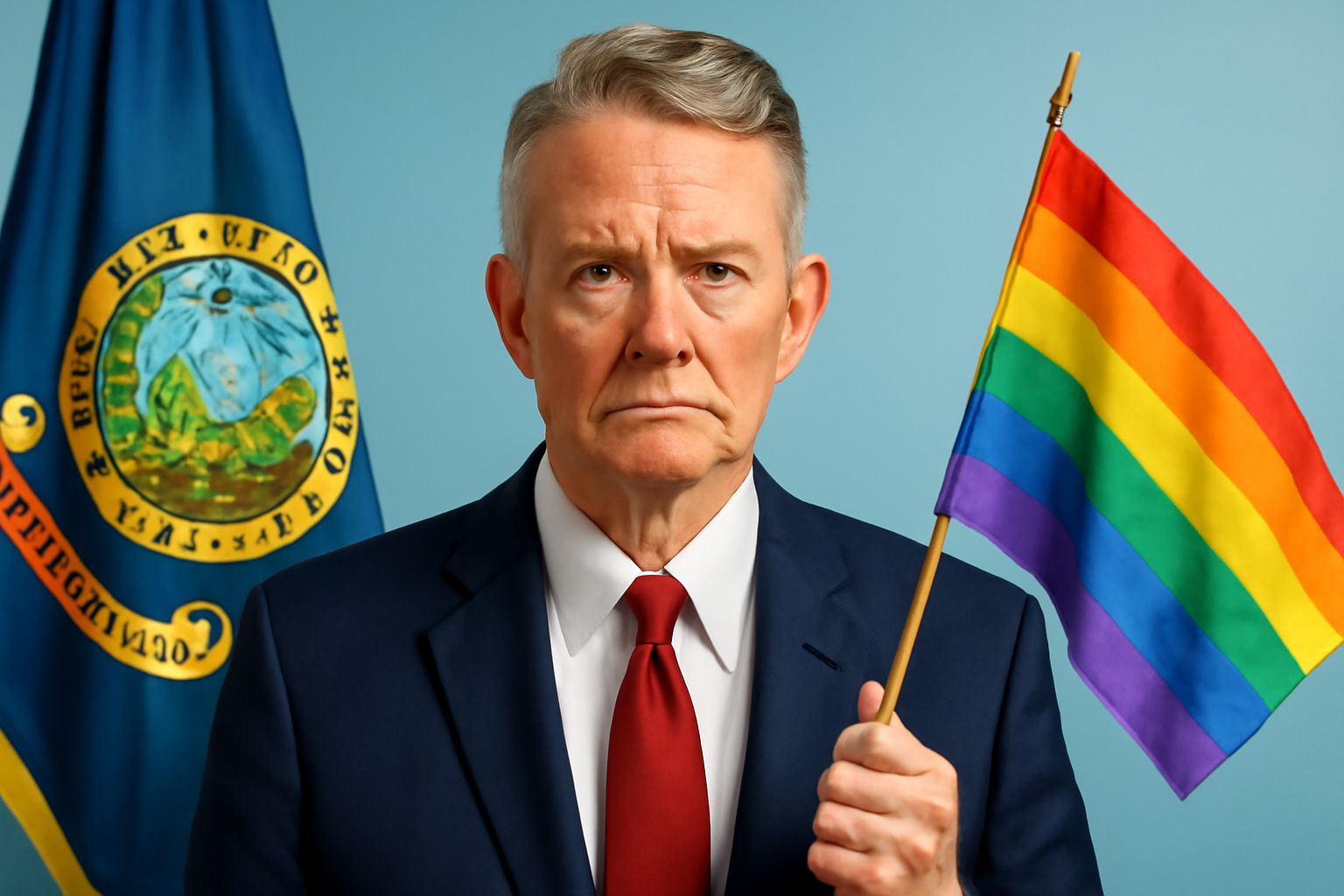
The political landscape in Idaho has taken a significant turn as the state’s Republican party has made a public appeal for the United States Supreme Court to reconsider its stance on marriage equality. This move has sparked a widespread debate across the nation, reigniting discussions on the rights of LGBTQ+ individuals and the legal recognition of same-sex marriages.
In 2015, the Supreme Court's landmark decision in Obergefell v. Hodges granted same-sex couples the legal right to marry, a ruling that was celebrated by LGBTQ+ communities and allies across the country. However, recent developments in Idaho suggest that the battle for marriage equality is far from over.
The GOP’s Stance
Idaho’s Republican leadership has been vocal in their opposition to the 2015 decision, arguing that it infringes on states' rights to define marriage according to their own laws and cultural values. They assert that the federal mandate contradicts the will of the people in states where traditional definitions of marriage have been upheld by popular vote.
In their appeal to the Supreme Court, Idaho Republicans are seeking to overturn the ruling, citing what they believe is an overreach of judicial power. They argue that the decision to recognize same-sex marriages should remain within the jurisdiction of individual states rather than being imposed by federal law.
Impact on the LGBTQ+ Community
This push for a Supreme Court review has generated concern and fear among LGBTQ+ communities, both in Idaho and nationwide. Many fear that a reversal of the 2015 ruling could lead to a rollback of rights and protections that have been hard-fought and hard-won over the years. The potential for legal marriages to be invalidated or unrecognized is a source of anxiety for couples who have celebrated their unions under the current law.
For many, the issue goes beyond legal recognition. It touches on the broader struggle for acceptance and equality in a society where LGBTQ+ individuals have historically faced discrimination and marginalization. The right to marry is seen as a fundamental aspect of equality, and any threat to it is perceived as a step backward in the fight for civil rights.
Reactions and Responses
The response to Idaho’s GOP appeal has been mixed. Advocacy groups for marriage equality have vowed to resist any attempts to overturn the Supreme Court’s decision. Organizations such as the Human Rights Campaign and Lambda Legal have expressed their commitment to defending marriage equality, emphasizing the importance of upholding laws that ensure equal treatment for all citizens.
Meanwhile, some conservative groups and individuals support Idaho’s position, viewing it as an opportunity to revisit what they consider to be a contentious legal issue. They argue that states should have the autonomy to reflect the values and beliefs of their populations, including the definition of marriage.
The Future of Marriage Equality
As this debate continues, the future of marriage equality in the United States remains uncertain. While the Supreme Court’s 2015 decision is a precedent that has reshaped the legal landscape, the possibility of revisiting the ruling underscores the ongoing tension between federal authority and state sovereignty.
For those advocating for LGBTQ+ rights, the path forward involves vigilance and advocacy. Ensuring that marriage equality remains protected will require continued efforts to engage with both legal and legislative processes. It also highlights the need for broader cultural shifts toward acceptance and inclusion.
In the coming months, as the Supreme Court considers whether to entertain Idaho’s appeal, the national conversation on marriage equality will undoubtedly intensify. The outcome could have profound implications not only for Idaho but for the entire country, as it navigates the complexities of balancing individual liberties with state governance.
As this issue unfolds, the commitment to equality and justice remains a crucial guiding principle for those who believe that love, in all its forms, deserves recognition and respect under the law.
Related Posts
"Wicked": Unveiling Fiyero's Destiny - Hidden Clues You May Have Overlooked
Have you ever been swept away by a story that leaves you unraveling clues long after it ends? That's exactly what "Wicked" does with its enchanting narrative, unforgettable songs, and complex characters. Among them, Fiyero stands out as a charming prince whose surprising metamorphosis by curtain fall makes us wonder: were there hints about his fate scattered throughout? Let's dig deep and see if " [...]
Triumphant Trans Woman Wins Legal Battle and Inspires Others to Stand Up for Their Rights
Breaking new ground: a landmark victory in transgender rights After battling in courtrooms and enduring endless challenges, Diana Portillo, a transgender woman, has secured a monumental victory in her decade-long fight against workplace discrimination. The result? Nearly $1 million awarded in a historic settlement. But this isn't just a win on paper—it represents a powerful precedent in combati [...]
Pride Month in Latin America: Protests and Demands for Equality
**Celebrating Pride and advocating LGBTQ+ rights in Latin America** Pride Month in Latin America was a lively mix where celebration met activism. Communities united, not just throwing a party but making a stand—demanding equality and pushing governments toward better protection and rights recognition. Throughout Latin America, pride events erupted in marches and cultural displays, each with a c [...]